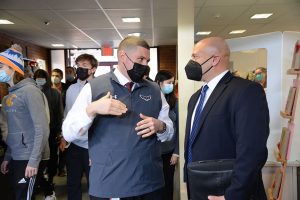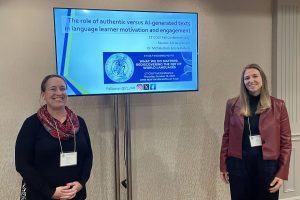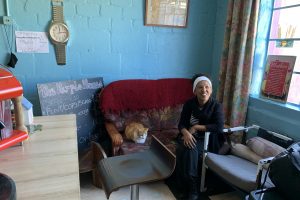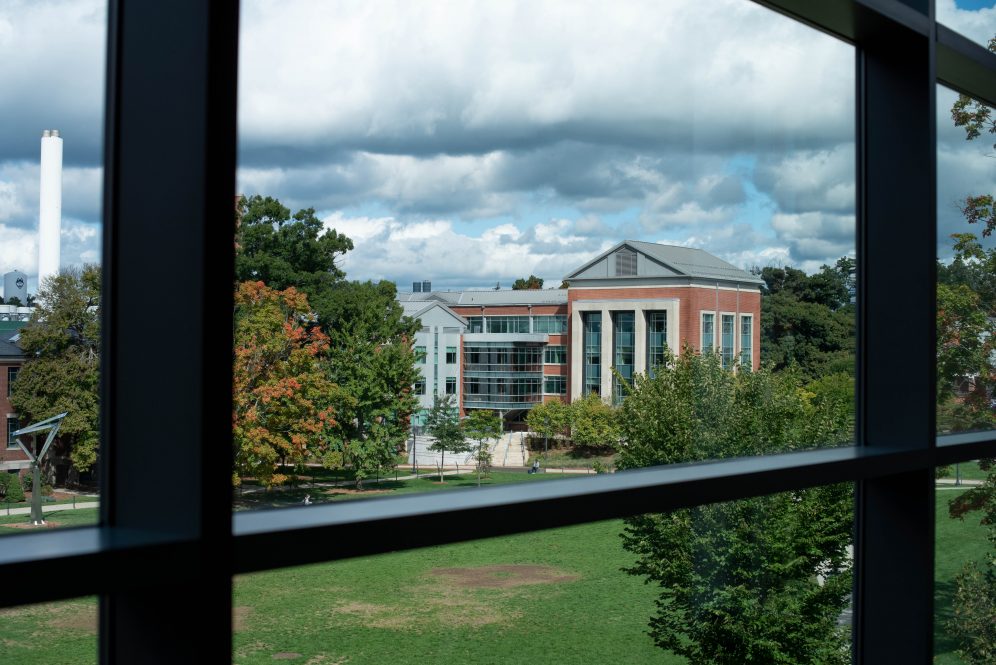A new initiative in the Neag School of Education, created by Director of Teacher Education Alyssa Hadley Dunn, is designed to give microgrants of up to $150 to teacher education instructors to fund unique classroom experiences for teacher education students.
The Neag School’s Office of Teacher Education announced the first round of microfunding award recipients last month, selecting eight projects.
As a former teacher, Dunn recognized the financial burden many K-12 teachers take on to prepare their classrooms and realized that teacher educators also often take on personal expenses.
“Often, we are expected to spend extra money to do things for our students,” Dunn says. “I wanted to see if there was a way to alleviate some of that financial burden.”

For microfunding recipients like Scott Hurwitz ’06 (ED), ’07 MA, ’19 Ed.D., ’21 ELP, an adjunct professor for the Teacher Leadership and Organization course, this funding is instrumental in recruiting guest speakers to enhance the learning experience for his students.
A graduate of the Integrated Bachelor’s/ Master’s (IB/M) teacher education program himself, Hurwitz understands the importance of students interacting with professionals from all different areas of the education field.
“I have school and district administrators come in,” Hurwitz says. “I typically have an attorney come in to talk about contracts. I have support educators, counselors, psychologists, coaches, special educators, and then I have recent graduates come in and talk about their experiences.”
For funding recipient Michele Back, this grant was used to encourage student attendance at the Connecticut Council of Language Teachers (CT COLT) annual conference in New Haven, Connecticut, in October.
As one of the only instructors for the Methods of World Language and Instruction course, which Neag School students participate in right before their student-teaching experience, Back recognizes the benefit of her students attending this conference and learning from experts beyond herself.
“It is a small program, so all of their world language information comes from me, and I’m not the only person who has that information,” she says. “The meaning and the value of this conference is so that they can learn about the most recent teaching practices in the field of world language. The other key purpose is so that they can start networking with teachers and administrators in the area of world language.”

After announcing this funding, which allowed her students to attend the conference at a discount, Back noticed an uptick in enthusiasm from her students: “I definitely received more interest from my students because of this funding, so for that, I am happy,” she says.
For some recipients, this microfunding has an impact that crosses continents.
Douglas Kaufman, director of the Neag School’s global education experiences, is going to use his award to support the School’s program in Cape Town, South Africa, and host a community activist to work with students.
Through the Neag School’s global education programs, instead of completing internships at different Connecticut K-12 schools during their master’s year, students can complete an internship abroad. Kaufman oversees the Cape Town program, during which eight master’s students complete their internships in schools and townships while also taking courses, such as the Graduate Seminar course which analyzes issues and research in the field of education.
Kaufman has indicated that this funding will help host Irma Titus, a spoken word artist, social justice advocate, and community activist located in a township called Bonteheuwel. Titus will work with the eight UConn students as they learn and teach in Cape Town this semester.

One of Titus’s current efforts is developing a library of books and other media that depict the history of arts in Bonteheuwel, which was tragically formed during apartheid when all Black and brown citizens were displaced from their homes and settled on cape flats such as Bonteheuwel.
As a part of this effort, Titus has started a café and social justice art installation out of a house called the “Purple House.”
“Supporting Irma and her work was something that has been on my mind for quite a while because she is always operating on a shoestring,” Kaufman says. “So, when this opportunity came up, I sent a proposal describing Irma’s activism and sharing how it is an important layer of the different experiences that students receive abroad surrounding social justice and anti-racist work.”
Kaufman recognizes that although this funding is only a small amount, it has the potential to catalyze significant change. “Even small amounts of money, if put in the right hands, can be great startups for the people who receive it,” he says.
That is precisely Dunn’s aim, as she hopes to expand this initiative in the coming semesters, given the positive reactions from instructors who have benefitted from these grants so far.
“Recipients are very excited, and I hope that their students are, too,” says Dunn, who is optimistic that this initiative will continue to grow and create more learning opportunities for future teachers.
To learn more about the UConn Neag School of Education, visit education.uconn.edu and follow the Neag School on Instagram, Facebook, X, and LinkedIn.



